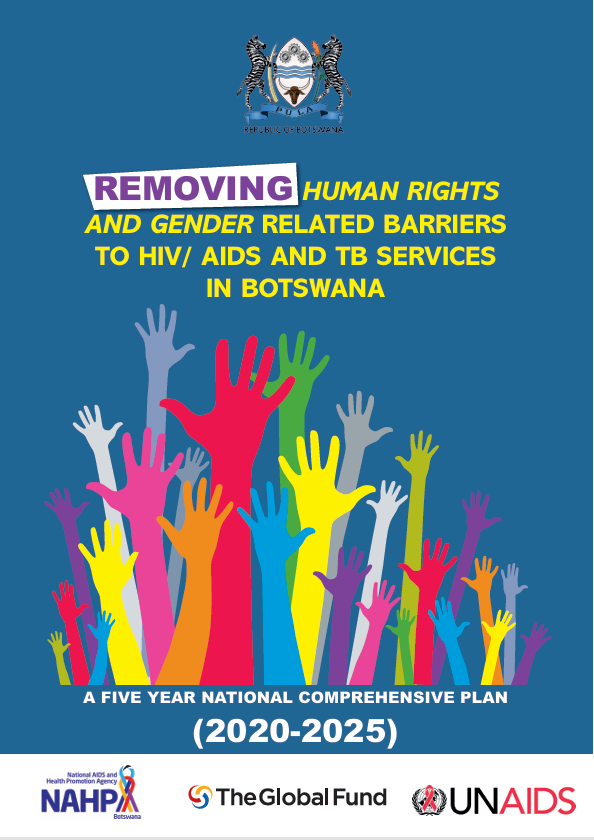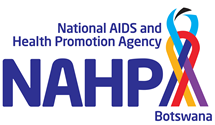National Strategic Plan to Reduce Human Rights – Related Barriers to HIV and TB Services: 2020-2025
Government of Botswana, through the National HIV and Health Promotion Agency, is committed to strengthening the coordination and management of Botswana’s national HIV and health response, to promote the health and well being of all people and achieve development goals. Botswana’s Third National Multi-Sectoral HIV & AIDS Response Strategic Framework 2019-2023 recognises that there are still important gaps to close with regards to the full implementation of the human rights agenda, particularly for key and vulnerable populations. The country appreciates that HIV-related stigma and discrimination negatively impacts on the health and wellbeing of people living with HIV and other key and vulnerable populations, creating barriers to service uptake. Between 2017 and 2018, Botswana conducted a Legal Environment Assessment for HIV, with the support of the United Nations Development Programme, as well as a Global Fund Baseline Assessment: Scaling up Programmes to Reduce Human Rights-Related Barriers to HIV Services. The NSF III, coupled with these two assessments, forms a critical foundation for national HIV, TB, health and human rights programmes.
The Legal Environment Assessment and Baseline Assessment provided evidence of critical legal and human rights issues limiting access to services and exacerbating vulnerability, which require specific action. While Chapter II of Botswana’s Constitution and various laws protect the rights of all people to equality, freedom from discrimination and violence, HIV-related discrimination persists. Laws and policies appear to be insufficiently protective particularly forkey and vulnerable populations and/or are inadequately known, implemented and enforced. The Baseline Assessment found that despite increasing efforts to remove human rights barriers, (e.g. working with lawmakers, the judiciary, the police and traditional leaders; providing legal services, strategic litigation and efforts to reduce gender inequality and harmful gender norms) there remained a need for increased commitment to scale up coordinated efforts and to improve monitoring, evaluation & data collection for a comprehensive response.
Type of document : Strategy Document
Thematic Area : Human Rights in HIV/AIDS-NCDs


